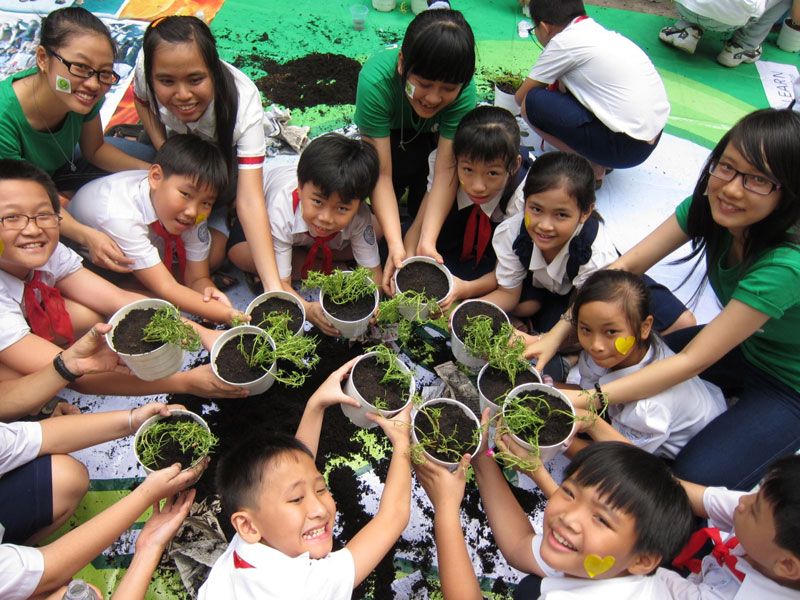UN CC:Learn Becomes a Key Partner of the ESD Global Action Programme!
05 May, Geneva, Switzerland - UN CC:Learn was nominated to become a key member of the Global Action Programme (GAP) Partner Networks on Education for Sustainable Development (ESD) under the “Priority Action Area 1: Advancing Policy.”
To advance ESD, by 2017, UN CC:Learn commits to promote climate change education at the national and international level, such as supporting the development of national climate change learning strategies and actions plans in Africa and facilitating climate change education, training and awareness-raising in Central America.
The GAP on ESD was launched in November 2014 at the UNESCO World Conference on ESD in Nagoya, Aichi, Japan. The overall goal of the GAP is to generate and scale up actions in all levels and areas of education and learning to accelerate progress toward sustainable development, contributing to the post-2015 agenda.
GAP Partner Networks serve as a global community of practice and exist for each of the five Priority Action Areas of the GAP: 1) advancing policy; 2) transforming learning and training environments; 3) building capacities of educators and trainers; 4) empowering and mobilizing youth; and 5) accelerating sustainable solutions at local level.
The purpose of Partner Networks is to intensify synergies between the GAP activities of their members, the Key Partners, and catalyse further action from other ESD stakeholders.
Currently, the Networks consist of 80 major ESD stakeholders from all regions of the world with extensive outreach capacity and the ability to innovate and have a significant impact on ESD. UNESCO selects the members of the Partner Networks based on the GAP Launch Commitments received from stakeholders.
To read more about GAP on ESD by UNESCO, please access here: http://en.unesco.org/gap

About UN CC:Learn
UN CC:Learn is a partnership of more than 30 multilateral organizations supporting countries to design and implement systematic, recurrent and results-oriented climate change learning. At the global level, the partnership supports knowledge-sharing, promotes the development of common climate change learning materials, and coordinates learning interventions through a collaboration of UN agencies and other partners. At the national level, UN CC:Learn supports countries in developing and implementing national climate change learning strategies. Through its engagement at the national and global levels, UN CC:Learn contributes to the implementation of Article 6 of the UNFCCC on training, education and public awareness-raising, and the 2012-2020 Doha Work Programme. Funding for UN CC:Learn is provided by the Swiss Government and UN partners. The Secretariat for UN CC:Learn is hosted by the UN Institute for Training and Research (UNITAR).
Picture 1: Vietnamese children and youth engage in green lifestyles ©UNESCO/GFOC, Vietnam

